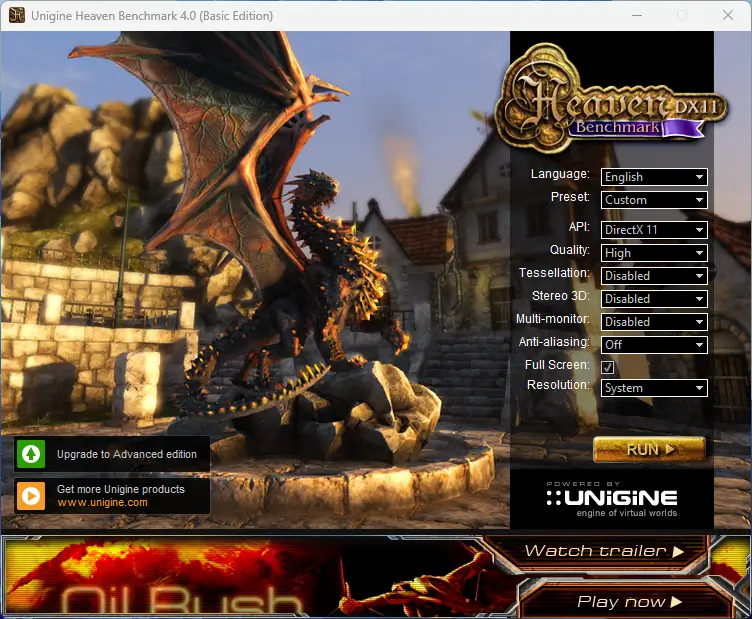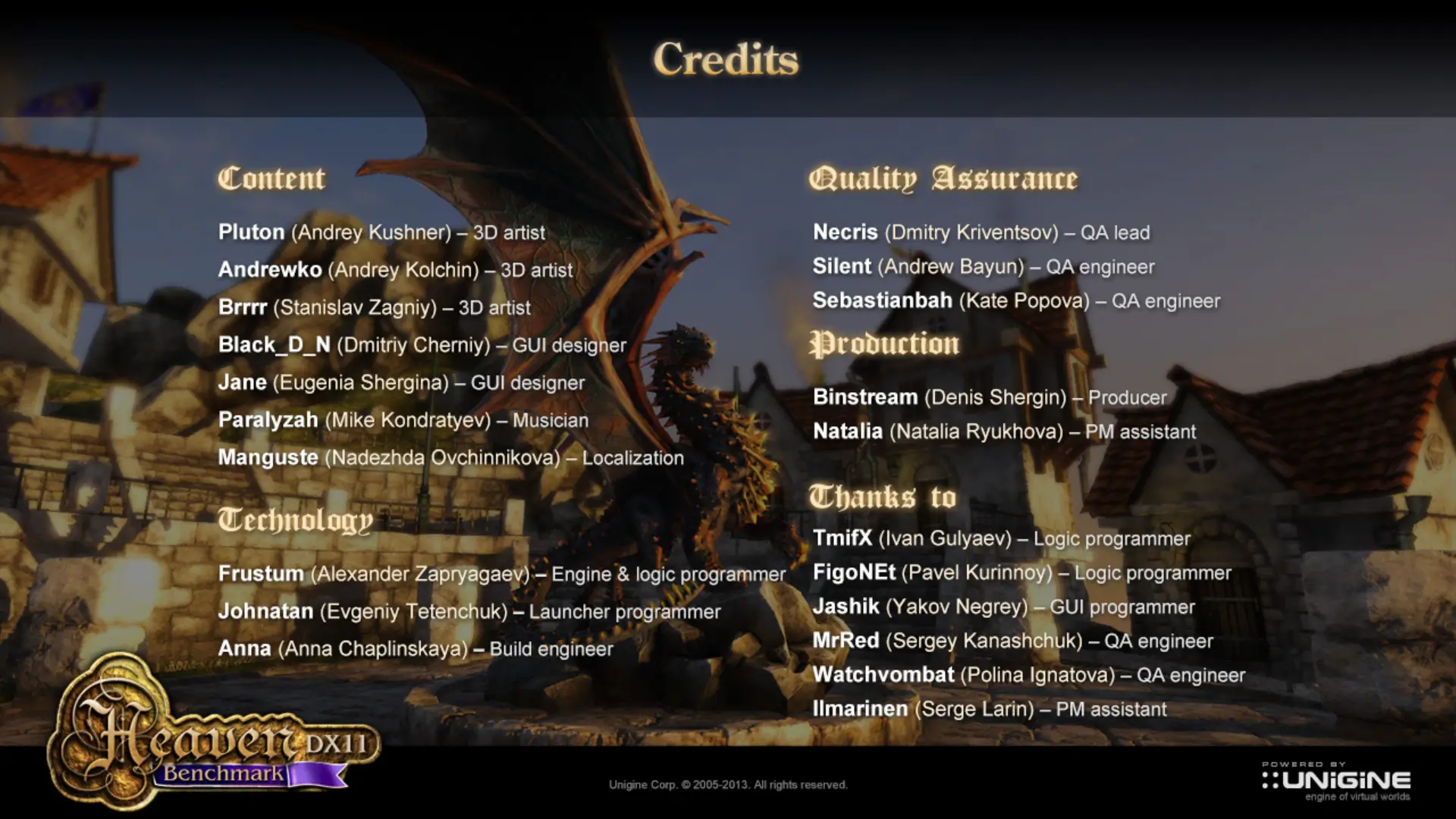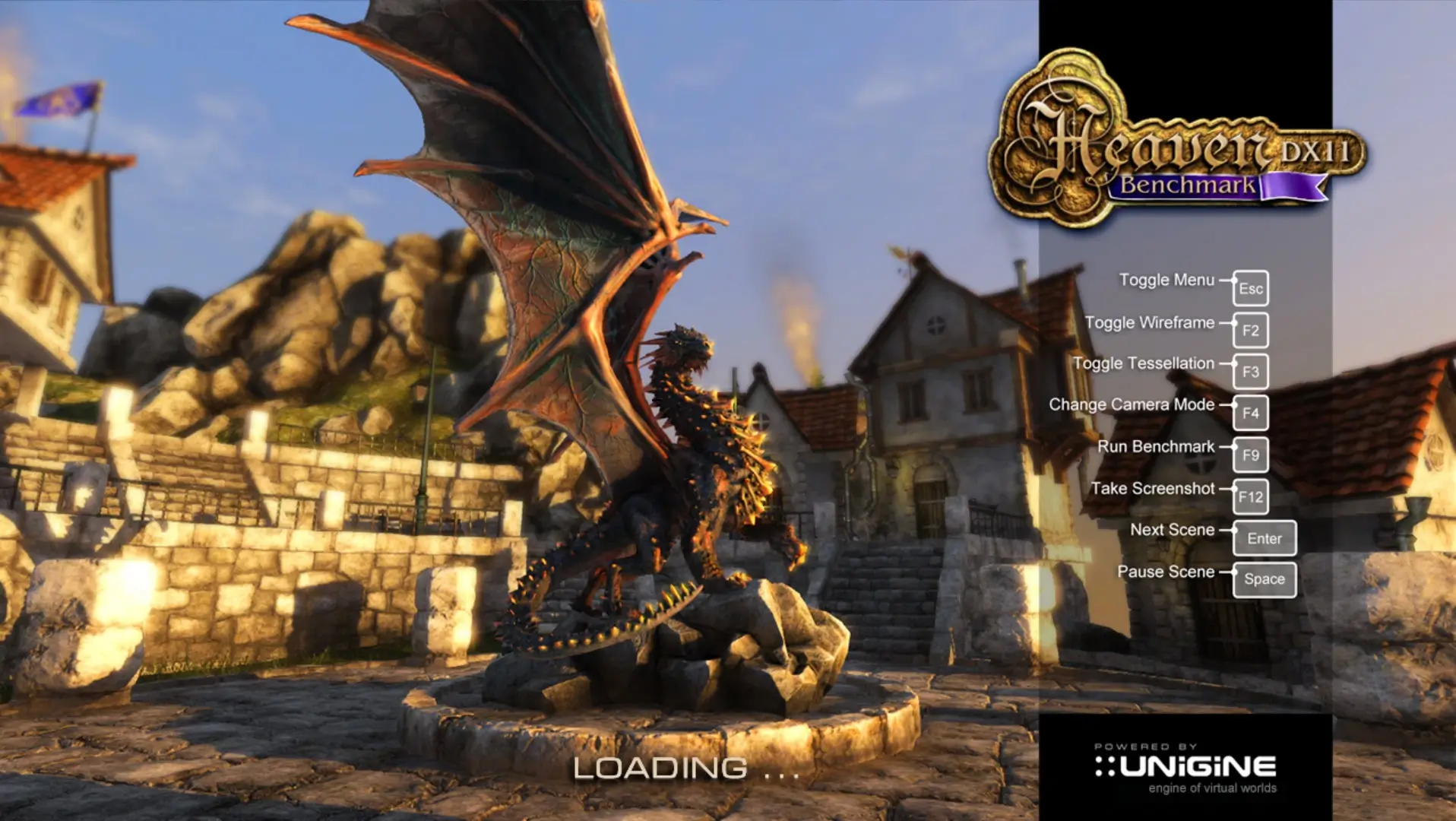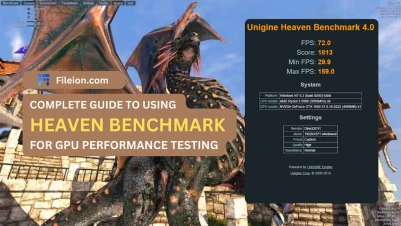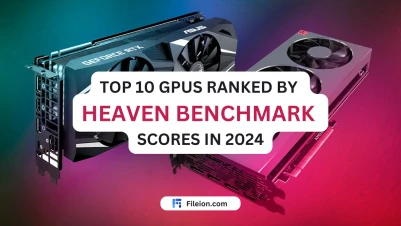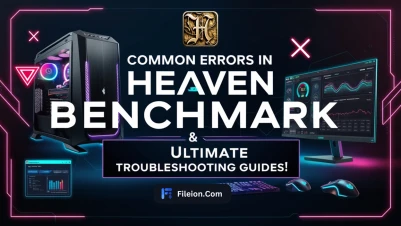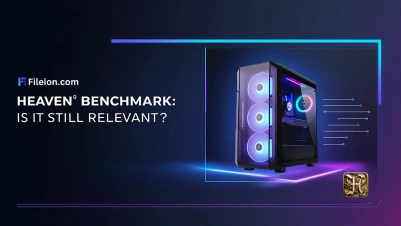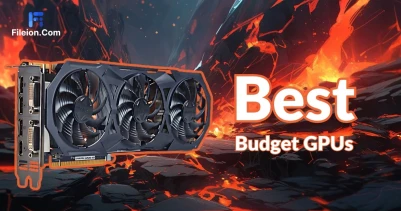From the acclaimed house of Unigine, Heaven Benchmark still soars high when it comes to stress-testing PC setups. However, as there are more than enough benchmarking apps out in the market, how does it fare? That’s what I will try to find out today!
Key Features & Overview
Over the years, Heaven has gone through pretty major and minor changes for the betterment of users. Here are some of the key features that we, as users, can be benefited from-
- Extreme hardware stability testing
- 100% GPU-bound benchmarking that ensures accurate results
- Support for DirectX 9, DirectX 11, and OpenGL 4.0
- GPU temp & monitoring
- Adaptive hardware tessellation
- Dynamic sky with volumetric clouds and tweakable day-night cycle
- Real-time global illumination and screen-space ambient occlusion
- Support for stereo 3D and multi-monitor configurations
- Cinematic and interactive fly/walk-through camera modes
- Powered by UNIGINE 1 Engine
System Requirements of Unigine Heaven Benchmark
For any stress-testing software, there will definitely be some prerequisites to run the benchmark properly. So, here are the system requirements as per Unigine’s recommendations-
- OS: Windows/Linux/macOS
- GPU: ATI Radeon HD 4xxx and higher, Intel HD 3000 and higher, NVIDIA GeForce 8xxx and higher
- Video memory: 512 MB
- Disk space: 1 GB
here’s what my test setup looks like-
- OS: Windows 10 Home
- CPU: AMD Ryzen 5 5500 16MB L3 cache
- Motherboard: Gigabyte B450M DS3H
- RAM: Kingston Fury 8GBx2 3200MHz DDR4
- GPU: EVGA GeForce GTX 1650 SC 4GB
- PSU: Corsair CV450 Bronze PSU
- SSD: HP EX900 M.2 250GB PCIe NVMe
Benchmark & Testing
I used the latest Heaven 4.0 (released in 2013) for the testing. Before I even start explaining the test results, the interface of the 11-year-old interface is definitely not that pleasant.
Anyway, I only used an MSI 170 Hz monitor to push out the testing score in single GPU (GTX 1650) scores. Moreover, I chose the Custom preset options to accurately optimize the settings to my preferences.
After running the bench in the basic mode, this is the result:
In my experience, this result is fairly accurate and shows the capability of the GPU properly. However, the FPS shown in the results can have significant deviation when compared to other benchmarking tools.
The temperature of the GPU remained barely under 70 C so that’s quite nice. In a warm environment, the GPU can take a significant hit on the scores.
Comparing it to RX 570, which is in the same budget range as GTX 1650, we get a result like this:
While this might not be the best comparison as the CPU is older than my setup, we can still correlate some aspects. As it seems, Heaven Benchmark focuses quite favorably on new-gen CPUs.
That’s why the major gap in the score is visible.
Now, setting the quality to ultra with tessellation on, the score drops and this is the result:
Again, the result is not bad but it can be better if you have an upper-mid-range GPU with better cooling. The temperature of the GPU in this testing was going above 70C which is definitely a drawback for the GPU.
Drawbacks
The interface really gives you that early 2010s vibe without any holdbacks. The stress testing definitely shows that it lacks some power that can be achieved through modern-day benchmark tools.
Another drawback is the deviated FPS monitoring which can be a bit of concern for many. Still, we all know benchmarking tools are just for testing purposes, they can never be an accurate measurement for real-world usage.
Unigine Heaven Benchmark Pricing
There’s no price attached to the Unigine Heaven Benchmark tool if you are using the basic mode as a gamer or tester. There are 3 more tiers which are Overclocker, Commercial Company Assembly, and Commercial Company With Multiple Installations
Those tiers cost $14.95, $495, and $7500, respectively.
Conclusion
To conclude, it’s easy to say that Unigine Heaven Benchmark does what it was meant to do. However, I would definitely like the interface to be a bit more modern and integrated with other plugins for user inclusion.
Other than that, I don’t have any complaints about the testing and benchmarking. Its solid performance is a thing to admire and I hope it continues to grow more!

